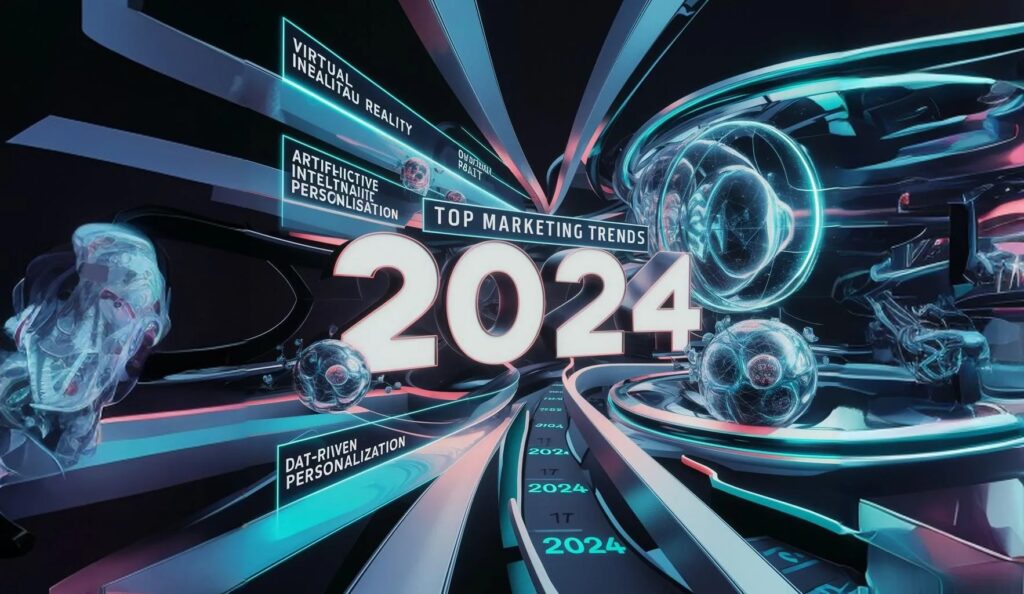Director of Marketing, Elwyn. Visionary leader, specializing in brand strategy, creative direction, and hybrid marketing. Visit me here.
It’s the time of year when marketers alike attempt to forecast the foreseeable future. As 2024 nears, we spend considerable time and effort planning and preparing how to best reach and connect with audiences and how to make a lasting and impactful impression.
Anticipating future marketing trends is a crucial and valuable part of the process and strategy. In an era marked by rapid technological advancements and continuously shifting consumer behaviour’s, staying updated with the latest marketing trends has become paramount. According to a report from VidenGlobe, “The year 2024 … is a time filled with opportunities and challenges we have never seen before.” In other words, running a business today means understanding how innovative strategies can benefit your company’s needs.
1. Conversational Marketing And AI-Driven Interactions
As we tread deeper into 2024, conversational marketing is poised to redefine customer interactions. Gone are the days when customers would wait patiently for responses; the modern consumer seeks immediate gratification and instant solutions.
2. Virtual Reality And Augmented Reality Integration
The border between the digital realm and reality is becoming increasingly porous, thanks to advancements in virtual reality (VR) and augmented reality (AR). These technologies offer marketers a unique opportunity to create immersive brand experiences. Whether it’s a VR showroom tour for a car company or an AR app that lets users visualize how furniture will look in their home, the possibilities are virtually limitless. As VR and AR hardware become more accessible, expect to see brands incorporating these technologies into their marketing campaigns.
3. Sustainability And Ethical Marketing
The modern consumer is not just interested in purchasing a product or service; they’re keen on understanding the brand’s values, particularly concerning environmental and social responsibility. This trend, spurred by global challenges like climate change and social injustices, has led to a surge in brands promoting their sustainability initiatives and ethical practices. From eco-friendly packaging to fair trade sourcing, marketing in 2024 is as much about value as it is about value.
4. Hyper-Personalization Through Big Data And Analytics
Today’s consumer expects tailor-made experiences. With the vast amount of data available from various touchpoints—be it social media, websites or even physical stores—brands can harness this information using sophisticated analytics. This results in hyper-personalized marketing strategies where content, product recommendations and even advertisements are customized for individual consumers. As big data technologies and machine learning algorithms evolve, I believe this trend will only become more refined, making mass marketing strategies increasingly obsolete.
5. Video Marketing And Short-Form Content Dominance
While video marketing isn’t new, its dominance has been compounded by the rise of platforms like TikTok, YouTube Shorts and similar short-form video platforms. The ephemeral nature of this content, combined with its engaging visual appeal, aligns perfectly with the dwindling attention spans of modern audiences. Brands are now leveraging short-form videos not just for advertisements but for storytelling, product launches and even customer testimonials.
Conclusion
In 2024, marketing will involve an innovative fusion of technological advancements and human-centered strategies. Companies that are aware of the subtleties of personalisation and the effectiveness of short-form content, and who leverage the power of conversational AI, immersive technologies like VR and AR, and the resonance of ethical practices, are going to succeed. Success in marketing still largely depends on flexibility and creativity in an environment that is changing practically every day.

